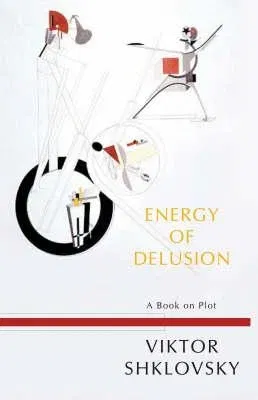Viktor Shklovsky
(Author)Energy of Delusion: A Book on PlotPaperback, 1 September 2007

Qty
1
Turbo
Ships in 2 - 3 days
In Stock
Free Delivery
Cash on Delivery
15 Days
Free Returns
Secure Checkout

Part of Series
Russian Literature
Part of Series
Dalkey Archive Scholarly
Print Length
428 pages
Language
English
Publisher
Dalkey Archive Press
Date Published
1 Sep 2007
ISBN-10
1564784266
ISBN-13
9781564784261
Description
Product Details
Author:
Book Format:
Paperback
Country of Origin:
US
Date Published:
1 September 2007
Dimensions:
22.61 x
14.61 x
3.4 cm
Genre:
Russian
ISBN-10:
1564784266
ISBN-13:
9781564784261
Language:
English
Location:
New York
Pages:
428
Publisher:
Weight:
657.71 gm